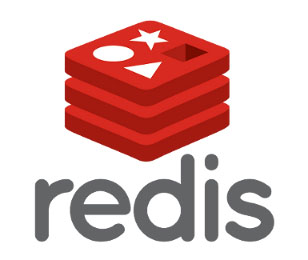How To Install Redis on Ubuntu 22.04 LTS

In this tutorial, we will show you how to install Redis on Ubuntu 22.04 LTS. For those of you who didn’t know, Redis is an open source in-memory data structure store, used as a database, cache, and message broker. Redis supports different kinds of abstract data structures, such as strings, lists, maps, sets, sorted sets, HyperLogLogs, bitmaps, streams, and spatial indices.
This article assumes you have at least basic knowledge of Linux, know how to use the shell, and most importantly, you host your site on your own VPS. The installation is quite simple and assumes you are running in the root account, if not you may need to add ‘sudo‘ to the commands to get root privileges. I will show you the step-by-step installation of Redis on Ubuntu 22.04 (Jammy Jellyfish). You can follow the same instructions for Ubuntu 22.04 and any other Debian-based distribution like Linux Mint, Elementary OS, Pop!_OS, and more as well.
Prerequisites
- A server running one of the following operating systems: Ubuntu 22.04, 20.04, and any other Debian-based distribution like Linux Mint.
- It’s recommended that you use a fresh OS install to prevent any potential issues.
- SSH access to the server (or just open Terminal if you’re on a desktop).
- A
non-root sudo useror access to theroot user. We recommend acting as anon-root sudo user, however, as you can harm your system if you’re not careful when acting as the root.
Install Redis on Ubuntu 22.04 LTS Jammy Jellyfish
Step 1. First, make sure that all your system packages are up-to-date by running the following apt commands in the terminal.
sudo apt update sudo apt upgrade sudo apt install wget apt-transport-https gnupg2 software-properties-common
Step 2. Installing Redis on Ubuntu 22.04.
By default, Redis is available on Ubuntu 22.04 base repository. Now run the following command below to install the latest stable version of Redis to your Ubuntu system:
sudo apt install redis-server
After successfully installation, enable Redis (to start automatically upon system boot), start, and verify the status using the commands below:
sudo systemctl enable redis sudo systemctl start redis sudo systemctl status redis
Confirm the installation and check the installed build version of Redis:
redis-server -v
Step 3. Configure Redis.
The Redis configuration file is located in this path /etc/redis/redis.conf. In this section, we are going to update the Redis configuration file to allow remote access and set an authentication password:
sudo nano /etc/redis/redis.conf
Find line:
requirepass fooboard
Uncomment it by removing the # symbol. After that change “fooboard” with whatever password you want to set for the Redis tool.
Save and close the file, then restart the Redis service to apply changes:
sudo systemctl restart redis
Let’s check whether the Redis tool is asking for a password to send commands or not:
redis-cli
This means we need to supply the password. For that type:
auth your-password
Step 4. Testing Redis.
To test that Redis is functioning correctly, connect to the server using redis-cli, Redis’s command-line client:
redis-cli
Next, type “ping” on the Redis command prompt. On successful connection with the Redis server, you will get PONG as a result:
127.0.0.1:6379> ping PONG
Step 4. Installing Redis PHP extension.
The Redis PHP extension provides client access to the Redis server. Now installing the Redis PHP extension will allow PHP to communicate with the Redis server:
sudo apt install php-redis
Now verify if the installation is successful, using the command below:
root@idroot.us:~# php -m | grep redis redis
Congratulations! You have successfully installed Redis. Thanks for using this tutorial for installing Redis on Ubuntu 22.04 LTS Jammy Jellyfish system. For additional help or useful information, we recommend you check the official Redis website.